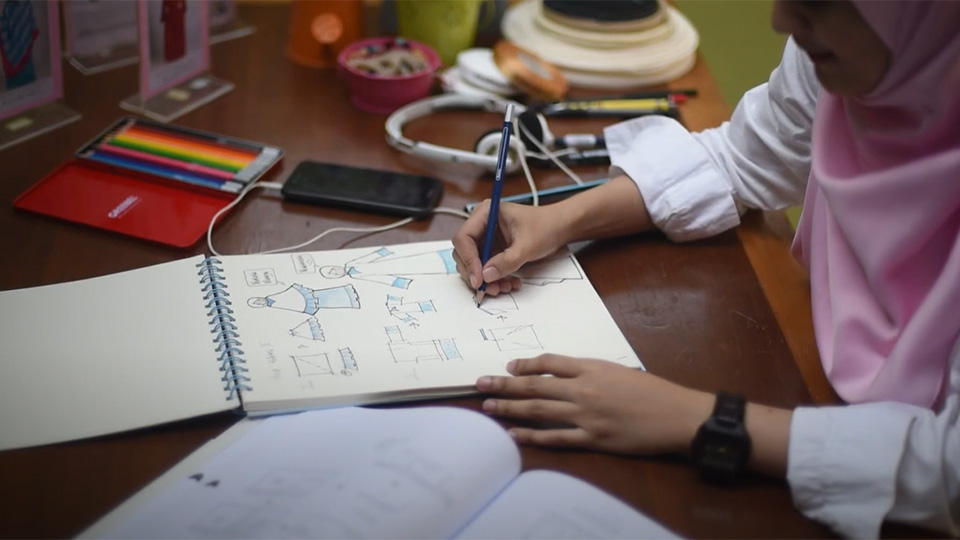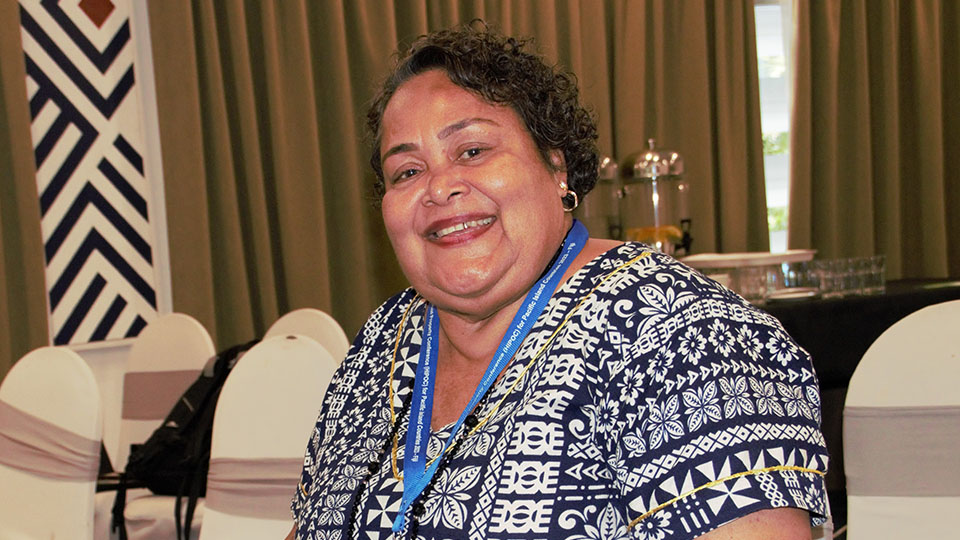Mothers2Mothers, South Africa
Throughout sub-Saharan Africa, the prospect of a diminished life has hung above countless numbers of parents and children because of HIV/AIDS. Often transmitted from a mother who has the virus to her child (either during or after childbirth), the disease has threatened to tear apart the fabric of some African societies.

Preventing mother to child transmission (PMTCT) of the virus has been the sustaining aim of mothers2mothers (m2m) – a non-governmental organization (NGO) established in 2001, in Cape Town, the Republic of South Africa (South Africa). To achieve its goals, m2m has implemented several strategies including recruiting, training and employing mothers on the continent living with HIV/AIDS.
Within a few years of its foundation, the NGO had established a strong reputation and revolutionary model for PMTCT care and engendered a remarkable transformation in the socio-economic and emotional life of many thousands of mothers (and children) in Africa.
As of 2012, m2m had expanded its brand and model across the continent and developed hundreds of sites in several countries including the Republic of Kenya, the Kingdom of Lesotho and the Republic of Uganda.
Research and development
m2m was founded by Dr. Mitchell Besser, an American gynecologist and entrepreneur who was developing pre and post-natal care services – including initiatives to reduce mother-to-child transmission of HIV/AIDS – in the Groote Schuur Hospital (GSH) in Cape Town. Whilst working at GSH, the doctor noticed an unfulfilled need to provide educational and psychological care services to expectant and recent mothers who had contracted the HIV virus.
Because human and other assets (including doctors, nurses, counselors and the funding required for their provision) were under-resourced at the hospital, Dr. Besser established a new, cost-effective support tier of workers within m2m called Mentor Mothers (MMs).
Employed and trained by the NGO in basic care giving and counseling of HIV positive mothers, MMs have worked alongside other medical professionals in m2m and have become an integral part of the PMTCT process – which begins shortly after such a mother is aware of being pregnant and up to one year after the child is born.
Indeed, from the beginning of its MM recruitment process, m2m insisted on paying such support workers (on a performance basis) rather than accepting them as volunteers. As paid professionals, MMs have been expected to uphold high standards and to be accountable for the care that they provide (which includes ensuring that patients understand, accept and adhere to medical advice).
Based in hospitals and clinics that provide PMTCT services, m2m’s mentors are given a two week training course based on a formal curriculum guided by the latest scientific developments and best practices.

Although these care givers have not been trained to perform certain high skilled procedures (such as HIV testing or providing medication, which is the role of nurses, doctors and technicians), they have supported health care officials that are fully qualified to provide such services. MMs, therefore, have strengthened rather than paralleled existing health care systems in South Africa and elsewhere.
Mothers who are diagnosed with the HIV virus are referred to m2m where they can receive one-to-one support and advice provided by MMs. These sessions have been run in support of the normal prenatal and postnatal care services provided at such sites.
Because many mothers in Africa have limited contact with healthcare workers (due to a severe lack of resources), or often fear seeking medical help once they have been diagnosed with the HIV virus (in part due to the social stigma attached to the virus), MMs have become trusted allies to whom such mothers can turn for advice.
Significantly, MMs are themselves mothers living with the HIV virus who have undergone the PMTCT process. This has placed them in a unique position to empathize with and mentor other women in similar situations.
As one m2m patient who subsequently became a MM said, “Before I joined m2m I felt alone. I didn’t have any knowledge on how to take care of myself or my baby. I was stigmatized, but now I am strong. I have all the knowledge on HIV and I have friends who can listen to me.”
Indeed, part of the challenge faced by previous health care regimes in South Africa was to overcome mistrust and encourage HIV/AIDS positive mothers to seek medical help. In the past, many mothers living with the virus retreated into the margins of society where they often become prey to isolation, poverty and bad health. Via the peer-to-peer support networks provided by MMs, however, trust and personalized care have been restored.
In addition, because of the consistent and well organized system established by m2m and its mentoring network, PMTCT patients have been able to improve their physical wellbeing (by accessing medicines and medical advice) and stabilize their emotional and social state (through counseling sessions and accompanying improvements in confidence).
An added benefit has been improvements in the patient’s financial status. Because of m2m’s services, hundreds of mothers living with the HIV virus have been able to gain employment as MMs, for example, or have found other work due to a renewed sense of confidence and rejuvenated health.

The NGO, furthermore, has been able to spread its services quickly and cost effectively because, for instance, it does not own fixed property; m2m sites are located inside existing clinical facilities. The NGO’s programs are also capable of being adapted to suit a variety of cultural and geographical considerations and to facilitate clinical and strategic changes in the PMTCT system.
m2m has relied on its experienced and expert staff that, apart from Dr. Besser, have included Gene Falk (co-founder and former CEO) and Robin Smalley (co-founder and International Director). Because of such employees, the NGO has implemented a principled, business oriented approach to its development strategies which has allowed it to expand steadily.
To achieve its goals, the organization has focused on its core responsibilities – providing PMTCT care and employing women living with HIV/AIDS – and is now broadening its services to include reproductive health and family planning as well as placing a larger focus on maternal, newborn and child healthcare provisions.
Less than a year after its founding, m2m had expanded from a few sites in Cape Town to 72 sites and then to 200 sites (in 2004) across South Africa. As of 2012, the organization has seen over a million women in over 700 sites across nine countries in sub-Saharan African. The NGO also has offices in the United Kingdom (UK) and the United States of America (USA).
Partnership
With hundreds of thousands of patients accessing its services across several countries in Africa, and a growing reputation for excellent service delivery, m2m has had to find innovative logistical solutions in order to administer its fast but steady development.
In order to improve its information technology (IT) networks, for instance, m2m has collaborated with the Hewlett-Packard Company (HP), a multi-national IT company based in Palo Alto, in the state of California, USA. Among its high tech solutions and services, HP has developed mobile phone devices and cloud computing technologies (or virtual computing services based on the Internet) that have allowed m2m’s employees – especially MMs – to facilitate patient care in a timely and cost effective manner.
Using the IT company’s mobile devices, m2m’s mentors have been able to schedule visits with PMTCT patients or to remind them in advance via text messages when such appointments are due.
HP, moreover, has begun the transfer of m2m’s paper records onto digital management systems which have led to time and cost savings for the NGO. Indeed, with the latest of HP and other technologies increasingly at the core of its services provision, m2m systems have begun to collate, synthesize and analyze vast amounts of patient’s information quickly.
With these logistical improvements, MMs and other healthcare professionals at the NGO will be able to access patients' records remotely and thereby provide up-to-date, life-saving medical care in a timely manner.
As Gabriele Zedlmayer, vice president of the Office of Global Social Innovation at HP said, “Global health is one of the last frontiers for IT transformation and holds immense promise for significant improvement to the quality of care available through the appropriate application and use of technology. With [m2m’s] rich understanding of health challenges in Africa, we can transform the lives of women in Africa and provide greater hope in winning the fight against HIV/AIDS.”
In part due to m2m’s good reputation worldwide, the NGO has been able to enter mutually beneficial partnerships such as that with HP. The IT company has subsequently become a key partner for the NGO, and its high tech solutions have allowed m2m to expand and deliver first class services.

Branding and financing
In order to maintain its meteoric rise while enhancing its established identity, the NGO has developed an impressive array of strategies for raising brand awareness and funds. To promote brand consciousness, m2m has partnered with several well-known individuals including international statesmen and women and celebrities. The organization has also relied on the creativity of ordinary members of society and its own staff.
The NGO has received endorsement for its services from heads of state and government including Bill Clinton, George W. Bush and Tony Blair and from internationally distinguished individuals such as USA’s First Lady Laura Bush and First Lady Michelle Obama. The organization has also received support from celebrities such as David Beckham, the England soccer star, and Beyoncé Knowles, an established American pop singer.
Moreover, as its brand and trademark has gained an international reputation for quality and efficiency, the NGO has been able to win lucrative financing from government and the business sector. Indeed, over 80% of the NGO’s budget is based on funds provided from these two sectors including those from the US Agency for International Development and the US President’s Plan for Aids Relief (PEPFAR) – an initiative by the USA government to help save the lives of people suffering from HIV/AIDS around the world.
Furthermore, by utilizing the power of social media on the Internet (including its own website and others such as Facebook and Twitter), the NGO has managed to raise funds via online donations and to enlist volunteers who have actively raised funds and spread awareness of its causes.
mothers4mothers2mothers (M4M2M), for instance, is a campaigning group of mothers based in London, UK, that has created fundraising events (including corporate events and others such as coffee mornings and lunches with its members) in support of the NGO. All donations received from M4M2M’s events have been used to finance PMTCT care services and other necessary costs at the NGO (such as purchasing uniforms for staff).
In part due to m2m’s collaborative efforts with established personalities and volunteers, the organization has been able to raise awareness of its goals while enhancing the reputation of its brand.
Trademarks and domain names
Having invested much time and effort in developing and promoting its distinctive brand and laudable cause, the NGO has relied on the intellectual property (IP) system in order to protect its respected identity.

figures representing an MM, a mother and her child. The mark has
raised awareness of the NGO's causes around the world (Image: m2m)
In order to promote its causes in the USA, the organization registered a trademark for m2m (2010) and mothers2mothers (2011) at the United States Patent and Trademark Office.
Moreover, with a view to promoting its services and principles based on a distinctive identity in the European Union, the NGO registered a trademark for mothers2mothers (2011) at the Office for Harmonization in the Internal Market.
m2m’s trademark, designed by Alex Levitan of All Brand No Flakes in Cape Town, is accompanied by an illustration of three interlocking figures that represent a mentor mother and a mother with her child embraced within a circle.
The colors of the trademark (green, blue, yellow, black, red, orange and pink) symbolize the many hues of people living in Africa. Viewed as a whole, the colors and figures represent the organization’s creed: warmth, caring, and interconnectedness. m2m’s colorful and easily recognizable logo, furthermore, sits prominently in the center of MMs’ staff uniforms and organizational paraphernalia.
The NGO also maintains a strong international presence via the Internet due to its well-made website, m2m.org.
With colorful and symbolic IP protected assets, m2m has been able to expand with confidence into new regions in Africa, gain a strong brand reputation and improve the lives of women and children across the continent.
Public health
In 2011 there were over 1.3 million women in sub-Saharan Africa who were pregnant while being HIV positive. Whilst this part of the world bears 53% of the global disease burdens, it only holds three percent of its healthcare workers. Moreover, 90% of the global pediatric infections of the HIV virus (about 1,100 a day in Africa in 2008) have occurred in this region of the world (70% during pregnancy and child birth). Furthermore, without medical advice and intervention, 40% of mothers living with the virus would have passed it on to their children.
The main hurdle to preventing mother to child transmission of the virus, however, is not a lack of medicines. “The main obstacle […] is the lack of information,” said Mr. Falk. “If women don’t know that there are [medicines] that can help them, they may not even test for the virus,” he said.
In addition, if such mothers know that such medicines exist but believe that they cannot afford them, or if they believe the myth that these drugs are not efficacious, HIV positive mothers may not seek these vital treatments.
To challenge prevalent misconceptions surrounding HIV/AIDS while increasing accessibility to life-saving drugs, m2m has implemented community outreach programs that are spearheaded by MMs. Such initiatives have included visiting patients in their homes, encouraging safe sex and advising mothers to adhere to healthy infant feeding practices.

Indeed, the issue of infant feeding is one of the most emotive challenges that have been faced by MMs. Because many HIV positive mothers in Africa don’t know that mixing formula and breast-milk increases the risk of HIV transmission, they continue such practices and thereby increase the incidents of HIV transmission to their infants.
It is estimated that 300,000 children per annum on the continent acquire the HIV virus from their mothers in this way. By educating mothers living with HIV about World Health Organization recommendations around feeding options, MMs have helped to break a significant means of HIV transmission from mother to child.
Commensurate with the demolition of knowledge barriers to healthcare, m2m provides education about life-saving medicines which may include a single dose of antiretroviral treatment (ART) – medicines which boost the immune system by keeping HIV in a patient to low levels. A dose of ART is given to a mother during labor and a separate dose is given to her infant shortly after birth.
Such medicinal interventions do not cure the mother of her HIV status. They can, however, reduce the risk of transmitting the virus from mother to child by 50% (according to Avert, a UK-based international HIV/AIDS charity). By following the full course of the PMTCT regime, moreover, mother-to-child transmissions of HIV can be reduced to less than 5%.
m2m has not only provided education and support to mothers living with the HIV virus; the organization has also employed many hundreds of them (as MMs, for example) and placed many thousands of others on the path to good health and employment in alternative business sectors.
Such socio-economic improvements and interventions, furthermore, have been in line with m2m’s pledge to fulfill its commitments under the Millennium Development Goals (MDGs) – a set of eight aspirations adopted by governments and organizations around the world (since 2000) in order to reduce global poverty and the rise of HIV/AIDS by 2015.
As of 2012, m2m continued to meet its obligations under the MDGs and in so doing the NGO had achieved remarkable results in PMTCT. The organization has contributed to reducing infant mortality rates for children born to mothers with the HIV virus and improved the health, education and socio-economic outcomes of hundreds of thousands of women and children in Africa.
Business results
Since its founding, m2m has developed a world-wide reputation for quality services and successfully developed a health care model that has become an international trailblazer.
According to the Population Council (the Council), an international, nonprofit NGO based in New York, USA, m2m’s programs have ensured that HIV positive mothers who take part in counseling by MMs are significantly more likely to take up recommended medicines; take the necessary tests to determine their health status; disclose their HIV status to their partner; and, use contraception.
Such mothers, according to the Council, are also more likely to report improvements in their psychological status and sense of belonging within the community.
Moreover, with its growing reputation for excellence, m2m has managed to win several grants from a variety of sources including governments, multinational foundations and through the corporate sector. By 2011, the organization had an annual budget of over US$20 million.

On the road to success, m2m has become a multiple award winner. The NGO received the Impumelelo Platinum Award (2007) – the highest award given to South African innovative service delivery projects that inspire replicable best practice.
Furthermore, the organization’s founder, Dr. Besser, was awarded the Presidential Citizens Medal (2008), a prize given by the president of the USA to American citizens who have performed “exemplary deeds of service” for the benefit of society.
In addition, m2m was awarded the Social Entrepreneur of the Year (2010) from Impumelelo Social Trust – an organization that celebrates good governance and service delivery in South Africa.
As of 2012, the organization was active in seven countries and over 600 sites while employing nearly 1,500 MMs. At the same time, m2m had enrolled over 240,000 mothers living with HIV/AIDS in its healthcare program.
A new horizon
Having established a compassionate reputation based on a simple and efficient mentoring system supported by the latest medicines, technologies, best practices and IP assets, the NGO has been able to grow steadily while saving the lives of hundreds of thousands of people.
Due to its pioneering peer-to-peer support networks, m2m has lifted a cloud of misery that had threatened to engulf an entire continent. In its place, rays of hope have begun to shine against a bright horizon for women and children living with HIV/AIDS in sub-Saharan Africa.



